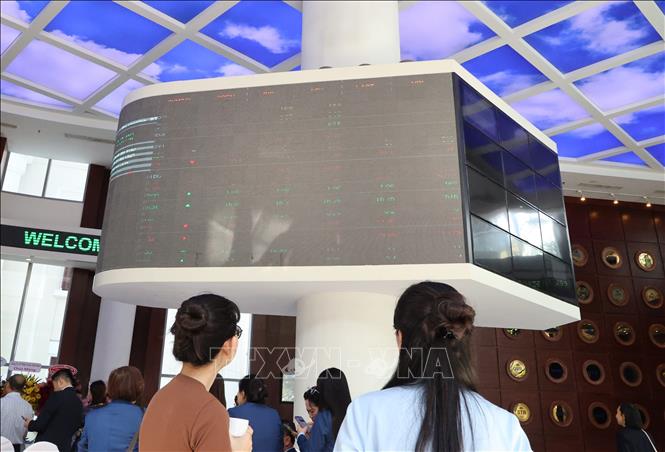
When Vietnam was first added to FTSE Russell’s watch list for upgrade in 2018, the gap between the “frontier market” and “secondary emerging” groups was still very far. Barriers in payment, foreign ownership ratios, or foreign investor transaction processes caused Vietnam to “miss the appointment” many times. However, what has happened over the past year shows that reform efforts have made substantial progress.
The issuance of Circular No. 68/2024/TT-BTC dated September 18, 2024 by the Minister of Finance , amending and supplementing a number of articles of the Circulars regulating securities transactions on the securities trading system; clearing and settlement of securities transactions; activities of securities companies and information disclosure on the securities market, effective from November 2, 2024, is considered a historic turning point in the process of perfecting the market infrastructure. This Circular officially paves the way for the non-prefunding mechanism, allowing foreign institutional investors to place orders to buy securities without having to have enough money before trading - a key requirement in the FTSE Russell "Payment - Transaction Cycle" criterion.
Next, Circular No. 03/2025/TT-NHNN dated April 29, 2025 of the Governor of the State Bank of Vietnam , regulating the opening and use of Vietnamese Dong accounts to conduct foreign indirect investment activities in Vietnam, has completed the legal corridor on capital flows and payments for non-resident foreign investors. Together with Circular 68/2024/TT-BTC, this document creates a seamless connection framework between the securities trading system and the banking payment system, elevating the Vietnamese securities market to the standards of emerging markets.
According to the State Securities Commission, up to now, 10 securities companies and 10 depository banks have successfully implemented the non-prefunding mechanism. This mechanism allows foreign institutional investors to place orders to buy securities without having to deposit the full amount before the transaction, instead of having to prepare the entire amount before placing the order as before. Thanks to this mechanism, transactions are carried out faster, more flexibly and facilitate the effective flow of foreign capital into the market. Up to now, the mechanism has recorded more than 90,000 transactions, with a total value of over VND 20,000 billion, accounting for 50% of the foreign transaction value - double compared to the period before applying this mechanism.
The rare technical error transactions were all handled safely, showing that the system's technical foundation and risk management are approaching international standards.
“The important thing is not only to meet the upgrading criteria, but also that we are creating a transparent, efficient and scalable trading platform in the long term,” affirmed Ms. Pham Thi Thuy Linh, Head of Market Development Department, State Securities Commission.
If in the past, each upgrade review period was a "short-term race" of market psychology, this time the focus has shifted to institutional quality and internal capacity.
Requiring listed companies in the VN30 group to disclose information in both Vietnamese and English is a testament to the long-term vision. By the end of 2026, it is expected that more than 2,000 companies will apply the bilingual standard - a fundamental step to increase transparency and connect with global capital flows.
In parallel, the management agency has established the Capital Market Development Advisory Dialogue Group (IAG) with 33 members, maintaining a direct exchange channel between the State Securities Commission, international organizations and foreign investors, to continuously improve operational quality.
According to Mr. Bui Hoang Hai, Vice Chairman of the State Securities Commission: “Upgrading the market is not the final destination. More importantly, Vietnam is raising its operating standards to get closer to the practices of the market rating organization MSCI, where requirements on transparency, investor protection and governance capacity are set at a higher level than FTSE Russell".
On September 11, 2025, the Government issued Decree 245/2025/ND-CP amending and supplementing a number of articles of Decree 155/2020/ND-CP guiding the Law on Securities; including many notable points related to the foreign ownership ratio. Accordingly, Point e, Clause 1, Article 139 - the regulation allowing the General Meeting of Shareholders or the Company's Charter to decide on the maximum foreign ownership ratio "lower than the level permitted by law" - was abolished. The abolition of this regulation paves the way for enterprises to increase the foreign ownership ratio to approach the general ceiling, instead of being controlled at a lower level due to the previous self-limitation.
In addition, Article 142 is amended to allow public companies to proactively notify changes to their maximum foreign room, provided that the new ratio is higher than the previously notified ratio and does not exceed the current legal limit. Documents and procedures are also simplified, shortening processing time.
Notably, the new regulation also simplifies the procedure for granting transaction codes to foreign investors - the Vietnam Securities Depository and Clearing Corporation (VSDC) will send electronic confirmation within one working day, instead of the previous form of paper issuance.
Decree 245 is considered an important step in the process of removing legal barriers, increasing transparency and creating more favorable conditions for international capital flows to participate in the Vietnamese stock market.
In addition, the KRX trading system operated by the Ho Chi Minh City Stock Exchange (HOSE) has officially come into operation, allowing the deployment of more modern products and trading mechanisms, creating a foundation for shortening the settlement cycle. In parallel, the central clearing mechanism (CCP) is being built by the State Securities Commission and VSDC, after the relevant legal framework has been supplemented in Decree 245/2025/ND-CP.
Although technical conditions such as T+0 or CCP transactions have not been applied, market liquidity is currently maintained at a high level, with some sessions even reaching 2.5 - 3 billion USD. This reflects the strong development of the market, and at the same time requires continued investment in modernizing the trading and monitoring system, to ensure the safety of all market activities as the trading scale is increasingly large.
Chairman of the Board of Members of Vietnam Securities Depository and Clearing Corporation (VSDC), Mr. Nguyen Son said: “We believe that, along with the trading infrastructure, a modern and safe registration, depository, payment and clearing infrastructure is an important condition for the stock market to develop more effectively, transparently and sustainably.”
The proportion of individual investors currently accounts for more than 99%, making the market vulnerable to fluctuations. Therefore, it is necessary to promote training, develop investment funds and have tax incentives to encourage investment through professional institutions, Mr. Son stated his opinion.
On the international side, positive signals have also continuously emerged. During his working trip to Europe in September 2025, Minister of Finance Nguyen Van Thang worked directly with the London Stock Exchange (LSE) and FTSE Russell, and witnessed the signing of a memorandum of understanding (MOU) between FTSE Russell and the Vietnam Stock Exchange (VNX). This is the first time Vietnam has signed an official MOU at this level - a step demonstrating the country's commitment to the process of integrating into the global capital market.
According to BIDV Securities Company (BSC), FTSE Russell’s consideration of upgrading Vietnam in October 2025 is feasible. However, even if the results are not achieved, this process is still positive, because “the foundation is complete”.
BSC forecasts that the transition process after being upgraded will last 6-12 months and Vietnam may be included in the MSCI rating list for upgrading to an emerging market in the 2026-2027 period.
Mr. Le Duc Khanh, Director of Analysis at VPS Securities Company, said that investors should not be too concerned about the upgrade story. Even if the market increases again or funds and organizations trade stocks, the codes that meet investment standards will not necessarily fluctuate accordingly. Even paying too much attention to the upgrade sometimes causes excessive anxiety and leads to wrong decisions. Mr. Khanh emphasized that the upgrade trend will take place independently of foreign trading activities, and investors should focus on other important events and signals in the market, while paying attention to the timing and trading strategies of funds and organizations.
In the overall picture, Vietnam has met 7/9 criteria of FTSE Russell and 6/9 criteria of MSCI. Although the results announced this October may bring good news or require more waiting, the core is that Vietnam has built a nearly complete market system: a transparent legal framework, a safe payment mechanism, standard information disclosure and infrastructure ready for integration.
In reality, upgrading is a process of institutional enhancement, not simply achieving a title. When the foundation is strong enough, the result is just a matter of time. The Vietnamese stock market today is no longer just waiting for external recognition, but has asserted itself through concrete actions and achievements. Regardless of how the FTSE rankings are updated, the real path to upgrading - upgrading from the foundation, from quality and from trust - has been and is being shaped every day.
Source: https://baotintuc.vn/kinh-te/thi-truong-chung-khoan-viet-nam-hanh-trinh-cung-co-nen-tang-ben-vung-20251006155100968.htm







![[Photo] Closing of the 13th Conference of the 13th Party Central Committee](https://vphoto.vietnam.vn/thumb/1200x675/vietnam/resource/IMAGE/2025/10/08/1759893763535_ndo_br_a3-bnd-2504-jpg.webp)


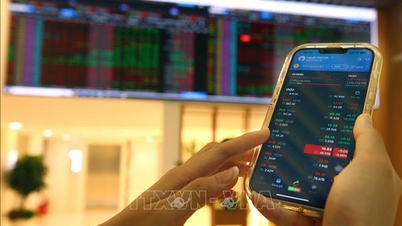




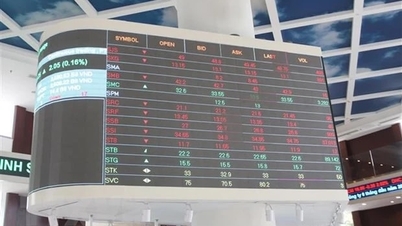

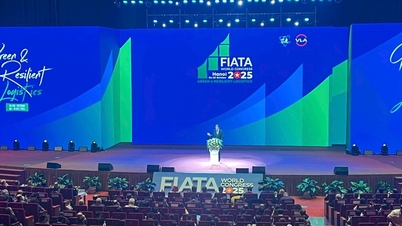

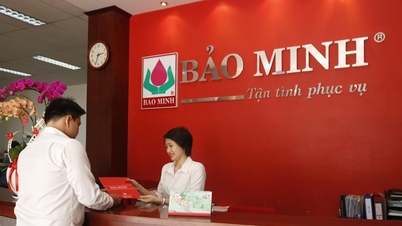
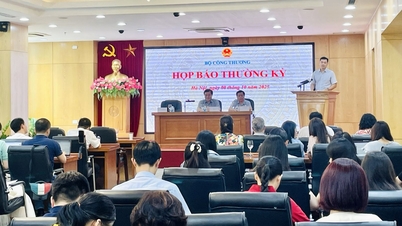
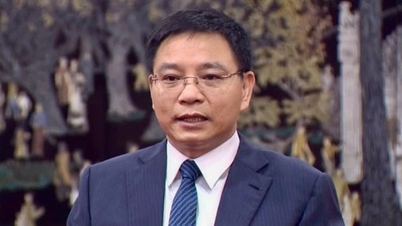

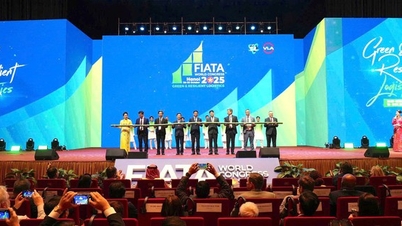
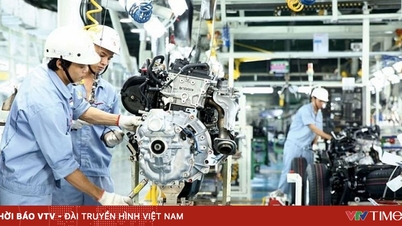








































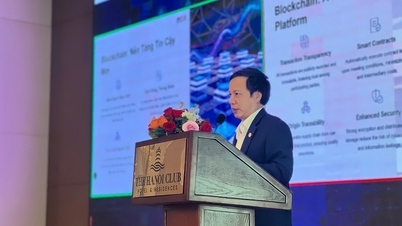

















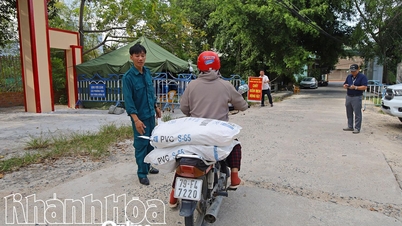




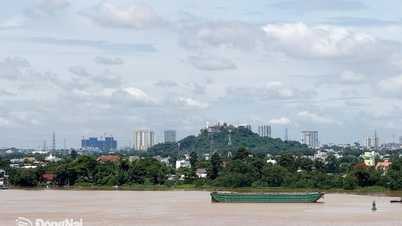

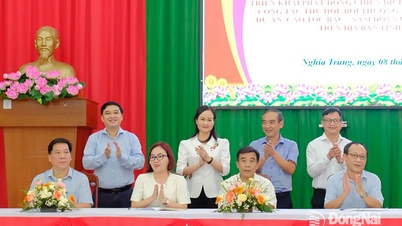












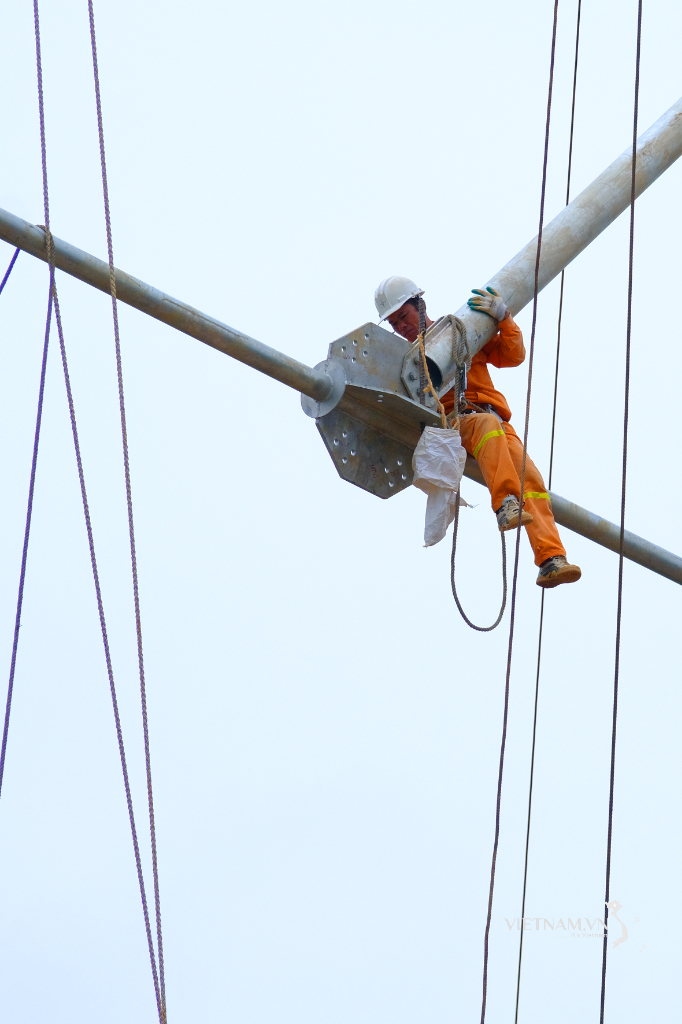

Comment (0)